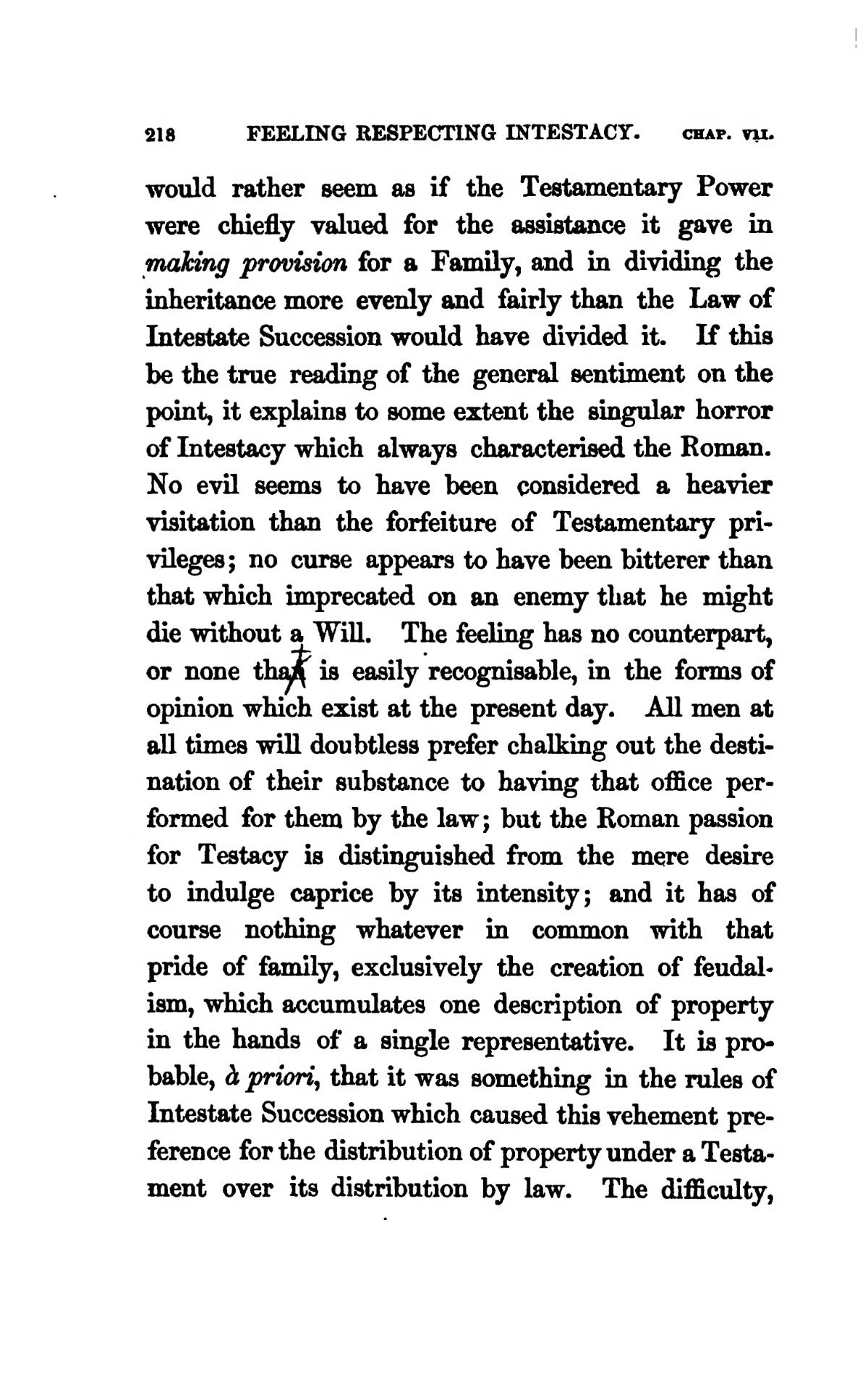would rather seem as if the Testamentary Power were chiefly valued for the assistance it gave in making provision for a Family, and in dividing the inheritance more evenly and fairly than the Law of Intestate Succession would have divided it. If this be the true reading of the general sentiment on the point, it explains to some extent the singular horror of Intestacy which always characterised the Roman. No evil seems to have been considered a heavier visitation than the forfeiture of Testamentary privileges; no curse appears to have been bitterer than that which imprecated on an enemy that he might die without a Will. The feeling has no counterpart, or none than is easily recognisable, in the forms of opinion which exist at the present day. All men at all times will doubtless prefer chalking out the destination of their substance to having that office performed for them by the law; but the Roman passion for Testacy is distinguished from the mere desire to indulge caprice by its intensity; and it has of course nothing whatever in common with that pride of family, exclusively the creation of feudalism, which accumulates one description of property in the hands of a single representative. It is probable, à priori, that it was something in the rules of Intestate Succession which caused this vehement preference for the distribution of property under a Testament over its distribution by law. The difficulty,
